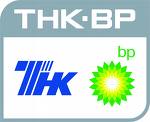Oil firm CEO questioned in Russian tax inquiry
 Moscow - The head of embattled British-Russian oil firm TNK- BP was questioned by prosecutors for over five hours in a Russian tax probe, Russian news agencies reported Tuesday.
Moscow - The head of embattled British-Russian oil firm TNK- BP was questioned by prosecutors for over five hours in a Russian tax probe, Russian news agencies reported Tuesday.
CEO Robert Dudley appeared at a local interior ministry office as a witness in allegations of large-scale tax evasion, a case which is seen to increase pressure on the firm as rumours mount of a buyout by a state-owned company such as Gazprom.
"This is an absolutely routine meeting related to TNK. There were no problems during the interview," Dudley was quoted as telling journalists after the meeting.
Russia's Interior Ministry refused to comment on the proceedings Tuesday. A spokeswoman for TNK-BP said the case related to a defunct subsidiary of TNK, but for which the company is responsible, and in the period of 2001 to 2003 before Dudley took charge.
The questioning came amid a stand-off between Russian and British shareholders that government officials over the weekend warned would get worse.
The dispute came to a head when Russian billionaire shareholders requested Dudley step down, but the chief executive was backed by BP in his refusal to resign last month.
BP CEO Tony Hayward was in Moscow last week in attempt to smooth over the public row.
A series of shocks with state bodies in recent months has fuelled speculation that TNK-BP, Russia's third largest oil producer, is being targeted for takeover by a Russian state-owned company, such as energy monopoly Gazprom.
Local newspapers reported in April that Gazprom had already agreed to acquire 51 per cent of TNK-BP.
Russian security services have twice raided the company's Moscow offices in connection with the tax probe and charges of industrial espionage against one of its employees. TNK-BP is also embroiled in a court case over infractions of Russian employment legislation. Top officials have said that the government would stay out of the shareholder dispute, and Alexander Medvedev, deputy chairman of Gazprom's management committee, said Monday the energy monopoly would only consider investing once the conflict was settled. (dpa)